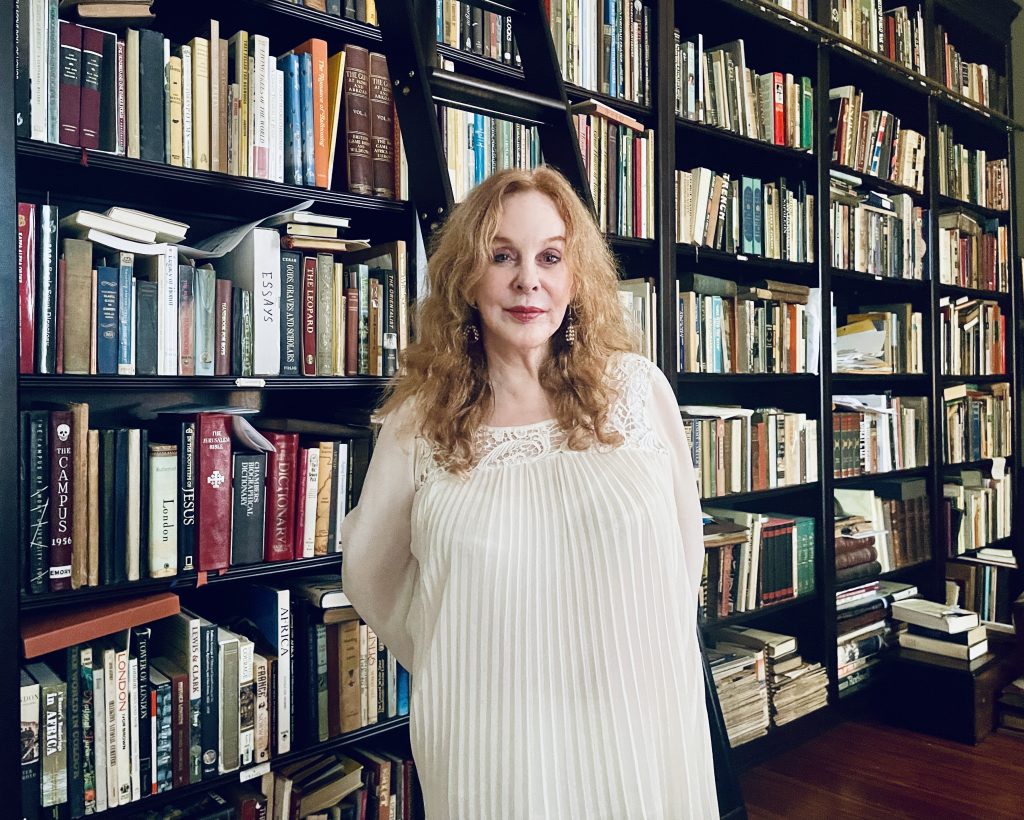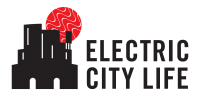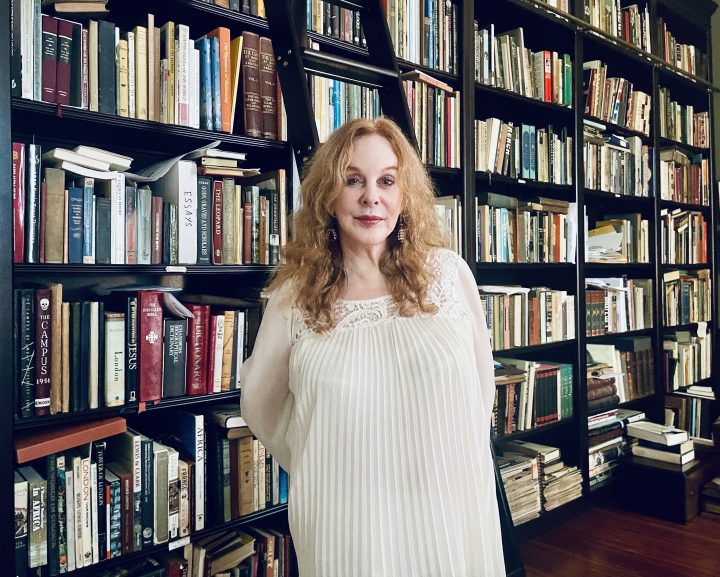
Acclaimed writer on finding fascination in Columbus, developing the local literary scene, crafting fiction more true than truth, and awakening the genius in us all.
Plus, which work she is most proud of in her stellar career — and why.
How would you describe the art and science of teaching someone to write?
“I didn’t start out as a teacher. I just kind of fell into it out of necessity and then luck and then I don’t know what. I just suddenly found myself in a university [Arizona State] teaching fiction in 1992.
I am a self-taught writer and a self-taught teacher. I learned by doing and practicing. I realize now I see writing as an organic process and it’s unique to each person.
There are ‘rules’ though. You can go into the writing section of any bookstore and see dozens of books on how to write best-selling fiction. I find most of them useless because they intimidate you and it makes it look impossible.
Storytelling is as ancient as humanity. When you think about it, we’re always telling stories. The sensation of listening to someone tell a story and making everyone laugh and entertaining them and then, at the end, a sense of reverence or awe about the mystery of the world.
We’re all looking at the mystery of the world. We don’t understand it. Why are we here? Who’s in charge?
As much science as we have, there are things we still don’t know. I think we tell stories for entertainment, for distraction from the harsh realities of the world. It is as essential an activity as eating bread.
That’s the way I went into teaching. That each student in my classroom has at least one — if not dozens — of fascinating stories to tell us.
The students turn in a draft of a story and I would go home and read it and then I would kind of go into this dream state, trying to figure out what’s underneath this story. What’s this person really trying to get at? What’s the big question they’re trying to ask? Because there always is one. Even though they may not know it . So I would teach students how to explore that for themselves on a deeper level.
We usually don’t know what that question is until we drop down into the story, down to where it’s uncomfortable, and you ask yourself, ‘Why do I have it written that way?’ Then you know it’s right because you feel it. Your whole body gets electrified as you realize, ‘That’s the secret I was keeping from myself.’
I think that way of teaching evolved over time. And trusting that each person had a genius in them. I do feel each person has fantastic stories in them and the genius to tell it. You just have to wake it all up. It’s an inside-out process instead of an outside-in process.”
What were your initial impressions of Columbus when you came here as the Carson McCullers Writer-in-Residence in 2016?
“I was living in Arizona at the time. I didn’t even know where Columbus was — I just knew it was in Georgia. So I looked it up online and I learned very quickly that there was a river and that it was close to Alabama.
The pictures of Columbus online — maybe they changed over the last few years — made me think, ‘This could be a long 3 months.’
I rode across the country with my oldest daughter and dachshund. We had a great time, driving and listening to music.My daughter dropped me off because she had a flight and she took my dog because she was taking care of him while I was in the residency. So then there I was, standing alone in the Carson McCullers house in Georgia.
I thought the McCullers house was interesting. Chock full of memories and stories and ghosts. It’s not spooky. Just rich. A thick broth. You can feel Carson’s presence there. And her family’s presence.
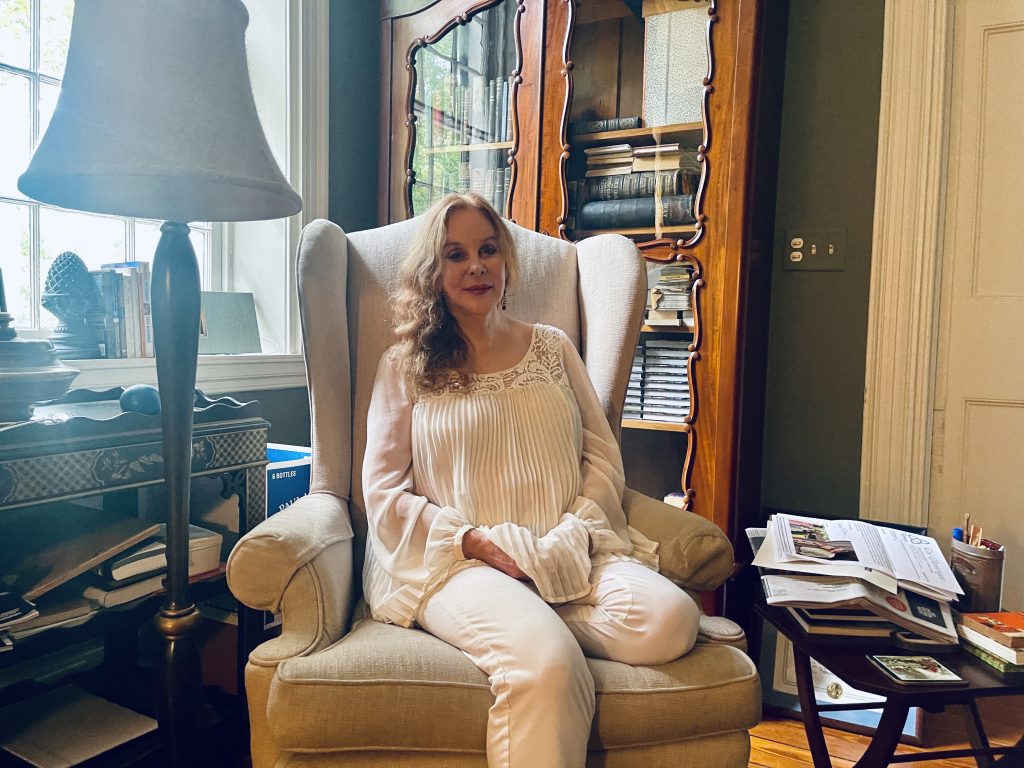
I was hungry so I went to Publix. I bought those meals you put in the microwave for one person. I got a bunch of those. I got some wine.
What struck me was how friendly everybody was. I had just come from somewhere people aren’t that friendly; they won’t talk to you unless they know you. In Publix, everybody was talking to me. I asked the guy taking the groceries to my car where a car wash was and it turned into this whole thing with all these connected stories. It wasn’t just, ‘It’s down there.’
I thought to myself, ‘Is this place real? These people are so kind and nice and hospitable.
And it’s so pretty here. So green and with all these trees. I came from the desert. I was hungry and thirsty for trees. I just thought it was beautiful.
Within the first week, I went to church, because I figured that’s a good place to meet people. I don’t know anybody so I went to Saint Thomas Episcopal because I could walk there. I figured I could slip in the back and go unnoticed. But that wasn’t true as all these people came to greet me. I made my first friends there at St Thomas. I started doing a writing tutorial program for kids through the church in an after school program.
I loved Columbus right away. I hadn’t been here long when I was thinking about moving here.”
What do you think makes Southerners good storytellers?
“When I went to get my MFA at Vermont College — it was a low residency program, so I went for 9 weeks to Montpelier — I had a roommate the first year I went there. She was from South Carolina and we hit it off right away.
We would lay in bed at night in the dark and she would start telling us stories. It always started with family and ran from there. Just the way she told the story — the details, the way one thing connected to another. I was spellbound. That was my first experience meeting a Southerner.
In Columbus, people have a long history here. Seven, eight generations— it goes back. Families are very connected here. People grow up together. They go to the same schools together. They know each other from childhood to old age. Everybody is connected. If something happens to one person, it ripples throughout the community, and people show up to help.
It could be the churches. I’ve never seen so many churches except in the South. People take going to church pretty seriously. They get involved that way, too.
And the arts. I just feel there’s a support system underneath it all. How does that relate to storytelling? … I’m not sure. I think about it a lot, actually.
Also, the pace of life. When I moved here, I realized the pace of life was much slower. In the West, it’s go, go, go. I used to make to-do lists everyday I had to go down. I don’t have lists anymore; I just kind of organically move around.
I think it’s an eye for detail. An eye for history. The slowness of pace. Maybe it’s all the porches — people sitting on front porches and telling stories.
I learned the Southern style of storytelling first-hand from my now husband, Philip. He told the greatest stories, all in this leisurely way. I could listen to him all day. Always something peculiar in the story, of the rise and fall of fortune. Somebody had nothing, then they had everything that they ever wanted. And then they were overtaken by tragedy.
It was so dramatic! More dramatic than a Netflix series. So I think it’s a particularly Southern trait, great storytelling. I haven’t seen it anywhere else.”
If you had to create a timeline, what would you say are the key points in the literary history of Columbus?
“I’m not an expert on that. Obviously, Carson McCullers. But before Carson McCullers, Augusta Evans, who wrote the novel St. Elmo here in the 1800s. It was more popular than Gone with the Wind.
I know it’s a high note in literary history but it’s kind of unreadable now. Philip couldn’t get through it. He had this idea that I would read it aloud to him. I started reading it before I finally told him I could not do it anymore. It’s really long, too.
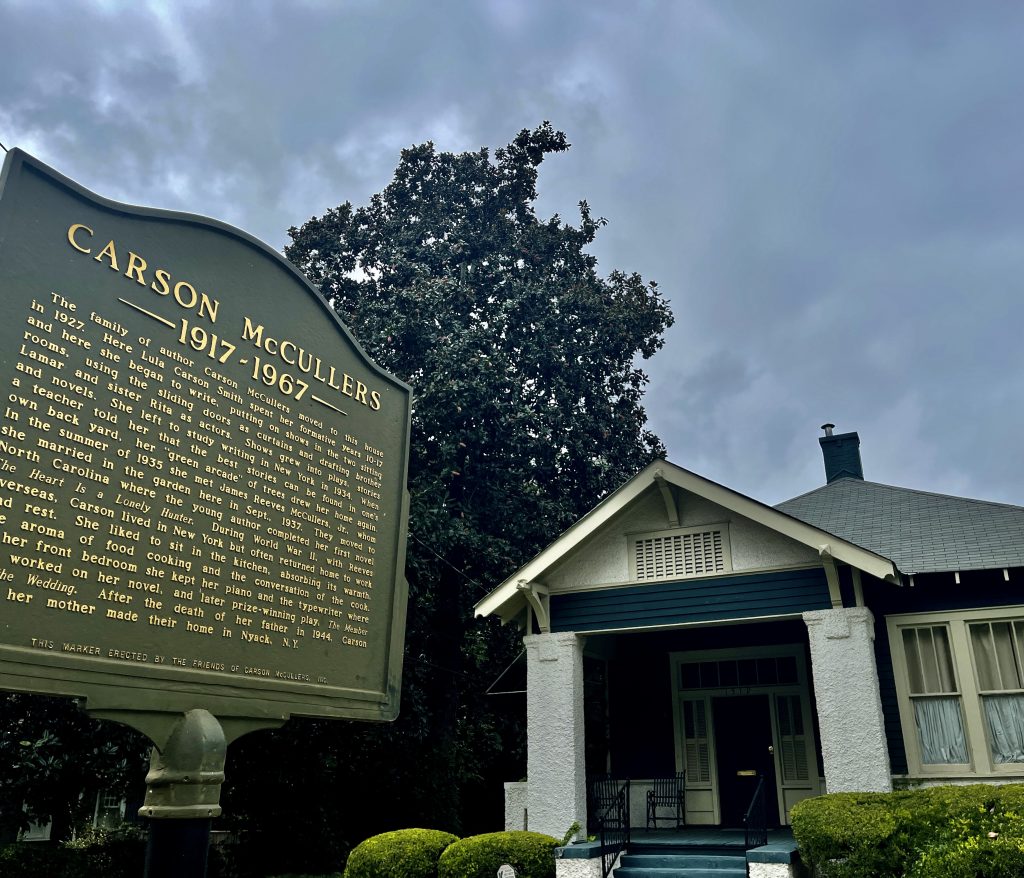
Since the Center [Columbus State University’s Carson McCullers Center for Writers and Musicians] started hosting a writer in the fall, some amazing people have come through here as the fellows. I think that’s added a lot, as they organize readings and workshops.
The literary world here is really picking up.”
What is your take on the literacy scene here today?
“It was sleepy for a while, maybe, but I think now it’s picking up.
I’ve spent most of my time writing since I arrived here. I was just finished with some work when I decided I would get out, get involved, teach a salon, get to know everybody. Then COVID. We all went back into our hiding holes. I really want to get out and get more involved. I think it’s important.
The Center organizes the McCullers Literary Festival. There’ve been two so far. My friend Brad Watson was the first featured writer and then my friend Joy Harjo, {the 23rd U.S. Poet Laureate.}
Writers spend a lot of time alone. And none of us have a great deal of confidence. When writers get together, listen to each other, and critique each other’s work, it’s energizing. It gives us inspiration and energy and creates community.”
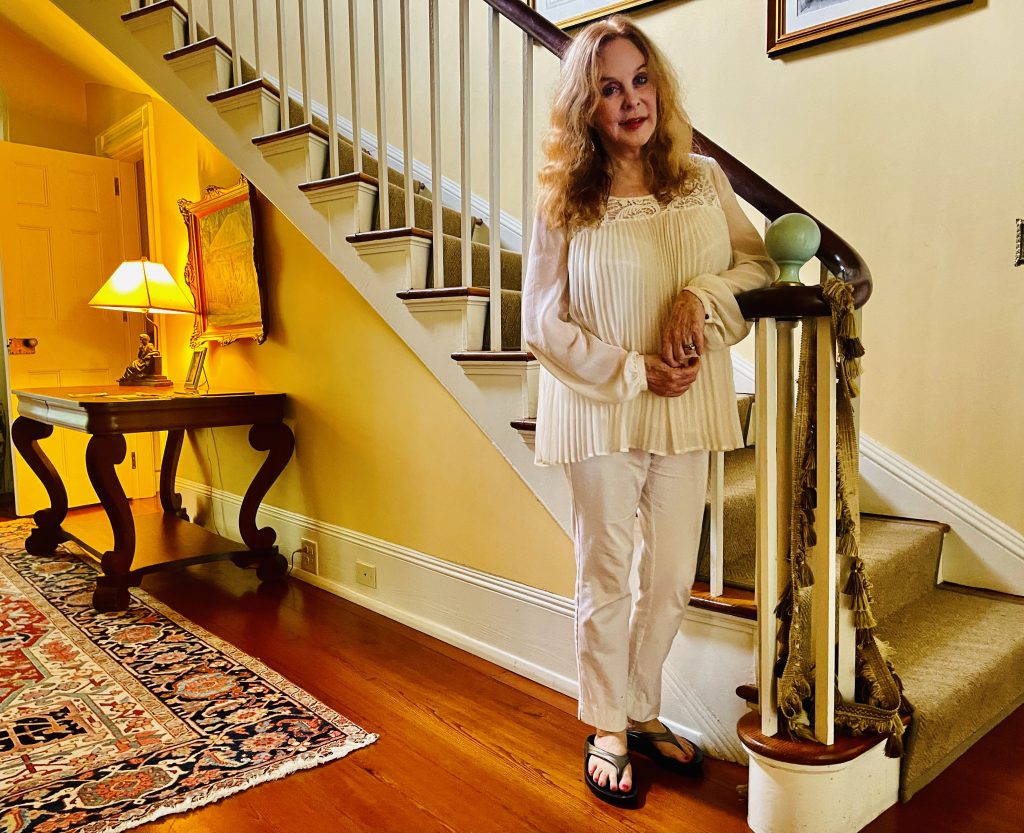
Columbus Writing Salon
* Monday evenings, 6:30-9:30 p.m., Oct. 18-Nov. 22,
* Rothschild-Pound House, 201 7th St.
* $350
* To register or for questions, email melissa@asu.edu or ormamiepound@gmail.com.
* First come, first served, limited to 10 writers serious about fiction.
* 3-hour session includes 1 hour instructed by Melissa Pritchard, 1 hour writing exercises, 1 hour group share and critique of participants’ work.

the Georgia Writers Association.
What needs to happen in order for the literary arts to blossom in Columbus like it has in recent years for the fine arts and theater?
“It’s wonderful what {Columbus State University literary arts endowment founder} Donald Jordan has done. He’s had this vision for a long time and finally it happened. {CSU Professor] Allen Gee is doing a wonderful job putting it together. I love his idea of service work — going out into developing areas of the world and helping — as a required part of it.
Once we get a handle on COVID and can all kind of get more active, I think Donald’s vision plus the Carson McCullers Literary Festival will prove to be huge. Those are two big things that have come along since I’ve been here.
If we can continue to bring in really relevant writers — relevant to the South, relevant in terms of diversity — that will certainly help move us forward.
The way the community supports things like the arts — the symphony, the Springer, the Bo Bartlett Center — I think literature is next. And I think it’s poised perfectly. We just have to get through this difficult period. But I think everybody is pent up and there will be an explosion of interest in the arts and people will be attending readings and taking workshops in support of literature in Columbus.”
BONUS CONTENT: Enjoy extra insight from Melissa Pritchard by listening to the full-length interview by Electric City Editor Frank Etheridge recorded 9.8.21.
Hometown: San Mateo, California
Education: University of California-Santa Barbara, Bachelor of Arts in Comparative Religion
Biggest surprise encountered in Columbus: “Philip [husband Dr. Philip Schley]. He was the biggest surprise. I had no expectation of that. Then after that, the absolute kindness of the people.”
Favorite author of all-time: “If I had to name a giant, in my pantheon, it would be Tolstoy. Right now, I’m reading War and Peace. Whenever I read him, I hold my breath. He just staggers me.
I think that the literary-fiction writer asks questions about life. Their writing is confronting difficult truths and is telling you that you can tell the truth — or you can tell the truth better — by wearing the mask of fiction. If you put your fiction mask on you can really tell that particular truth with words.
Right now, I’m working on a story. While I’m writing a story, I’m enjoying it enormously, but the next step will be to go deeper and ask myself why I’m writing it. I’m not there yet but that will help me finish.”
Personal Published Work Most Proud Of: : “The piece I wrote about Ashton Goodman when I went to Afghanistan. I was at a crossroads in my life and decided to do something different and went to cover the war in Afghanistan on a press junket for Harper’s magazine.
I was in the province that’s been in the news recently, Panjshir. I got to know a lot of new people and to go up in the mountains where we had clinics. I wrote about that experience and it was published. But then when I got back home, less than a week later, I found out that my driver — who I had become close friends with — had been killed by an IED. She was amazing. She hadn’t even turned 21. I loved her like a daughter. And she loved me.
A friend of mine I was talking to about Ashton told me, ‘Write about her. That’s your story.’ So I did and I wrote a piece about Ashton. About how I ran away from home after a divorce. How I felt lonely and decided to go to Afghanistan then there was Ashton’s death and I thought I couldn’t recover from it. How it was so horrible. I took a semester off of teaching school.
I sent it to my agent. She called me a few days later and said, ‘I’ve had several editors at big magazines reading it and they’re brought to tears by the story. They’re literally weeping over it.’
I went to work on it with an editor at Oprah magazine. Boy, do they work you hard as far as rewrites and fact-checking. It came out in their 10th anniversary issue. My story about Ashton was the feature story in the center of the magazine.
I got hundreds and hundreds of letters from that and I answered them all.
Then I was invited to give a lecture at the Air Force Institute of Technology in Dayton, Ohio. Ashton was in the Air Force. There were over a thousand Air Force officers attending that talk. All in uniform and spilling over into the other room. I gave them the power-point presentation I had. I was talking about the situation in Afghanistan for women and children and how bad it was then. You can imagine how bad it’s going to be now.
I was talking about Ashton’s life and brought it all together. At the end, the whole audience stood up and started clapping. A standing ovation. I didn’t know what to do. A picture of Ashton was on the screen behind me taken a few days before she died. Her parents were there in the front row and crying. People were deeply moved.
I’m proud of that piece because I communicated Ashton’s story through the power of language. Storytelling. That was storytelling through journalism and that moved people more than just the facts.”
